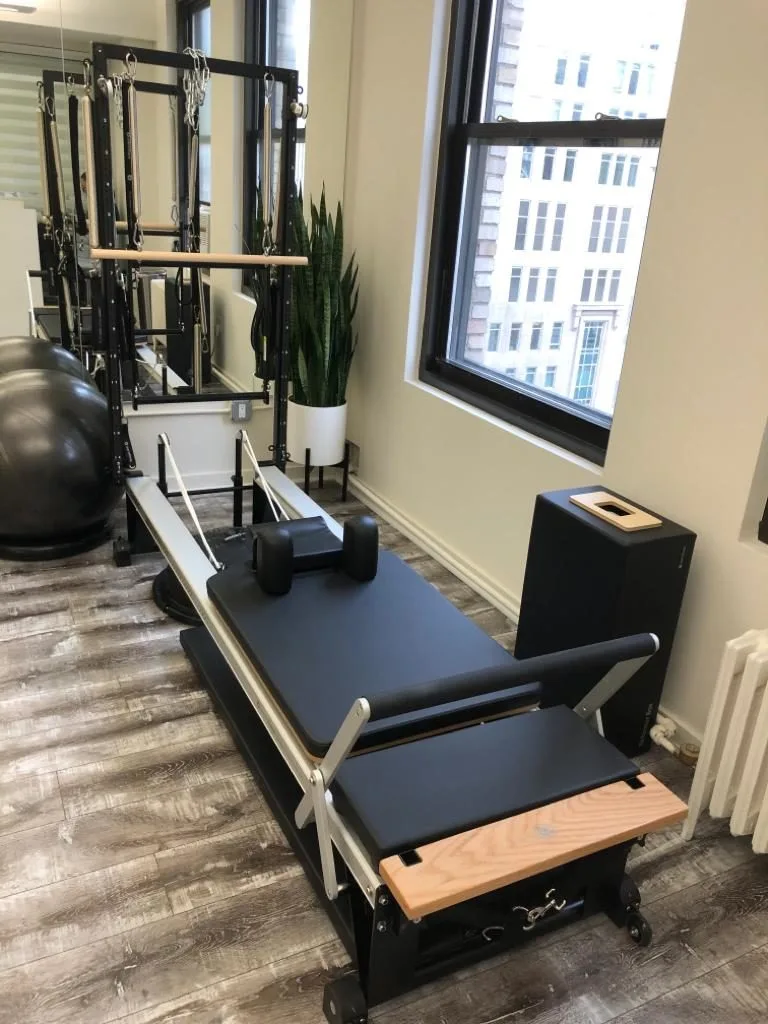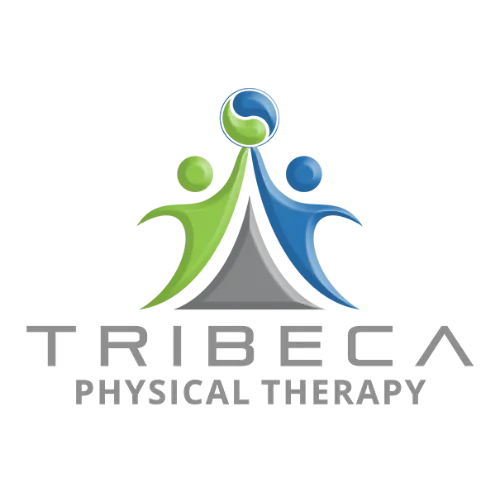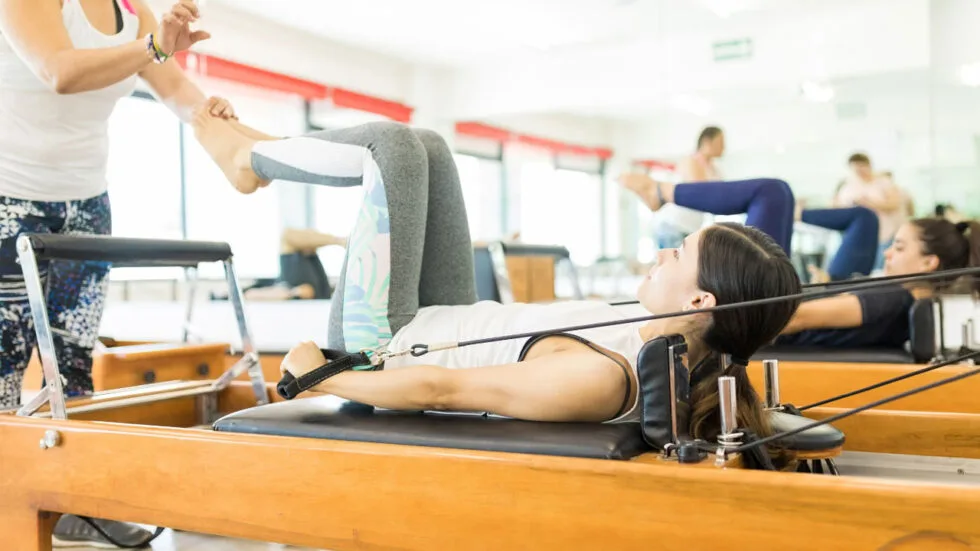Despite of the many benefits we can get from exercise still, many of us struggle to get out of the sedentary lifestyle. It is challenging because most of us have a busy schedule, or probably we are just not aware what is the origin of the exercise we are considering doing. Hence, resulting to us being not knowledgeable enough of its benefits. This article will mainly discuss one particular exercise, “The Clinical Pilates”, what it is about, what can it do for you and how can you do it.
Pilates started with one man named Joseph Hubertus Pilates born in Monchengladbach Germany, year 1880-1967. He created Pilates in the 1920’s for the purpose of rehabilitation. Some of the first people treated by Pilates were soldiers returning from war and dancers such as Martha Graham and George Balanchine. It is intended to strengthen their bodies and heal their aches and pains. It is about the art of control, an exercise method where you control your body, mind, and muscles. The moves were focus on core muscles in the “powerhouse” (abs, pelvic floor, lower back), proper alignment of the spine, and awareness of breath. After knowing the basic knowledge of Pilates, let’s now focus on Clinical Pilates and how does it differ to Pilates.

Clinical Pilates is a form of Pilates that focuses on posture, core strengthening, focus, balance, control, strength, breathing, and flexibility. It is often used in combination with the help of physical therapy in order for a patient to recover from injuries or injuries after surgery. It is a more personalised approach to treatment. An exercise specific per individual needs, that will adapt and change to suit each individual’s level and abilities. Clinical Pilates trainer provide a tailored program which targets specific muscles with the main goal of fast and safe recovery and a return to full physical capacity. Tribeca Physical Therapy’s very own Doctors, Doctor Kristian Marcial, PT, DPT is trained under STOTT Pilates and Doctor Monica Saliu is trained under Balanced Body. Both are contemporary styles of Pilates blend the work of Joseph Pilates with other disciplines of exercise or physical therapy leading to many different variations on the method and its apparatus.
Here is a list of common conditions that can benefit from Pilates-based Rehabilitation:
- Low Back Pain including sprains, strains, arthritis/degenerative changes, and disc or nerve involvement
- Posture Impairments including kyphosis, scoliosis and workplace/ergonomic related pain
- Neck Pain including whiplash, strain, arthritis/degenerative changes, and disc or nerve involvement
- Osteoarthritis
- Patellofemoral Pain Syndrome
- Women’s Health and Postpartum including diastasis recti, abdominal and pelvic floor weakness
- Most orthopedic injuries including injuries to the shoulder, hip, knee, and foot/ankle.
Pilates can be beneficial for anyone and we listed some of it’s general benefits for you
- Improve Core Strength – Clinical Pilates are designed to exercise targeted muscles to improve core strength. Core strengthening exercises are something that most of us just don’t get enough of. Core strength is required in just about everything you do from sitting and standing for extended periods of time to performing weight bearing activities such as carrying heavy objects and even in playing sports.
- Tone Muscles – Tone muscles and reduce cellulite to look and feel your best.
- Increase Flexibility – Increase flexibility and joint mobility to help with sports performance and everyday activities, such as gardening, house work and playing with the children.
- Reduce Back and Neck Pain – By targeting core muscles including the abdominal muscles, pelvic floor, diaphragm and multifidous muscles, our clinical Pilates classes in Pilates classes in Adelaide address weaknesses that cause back and neck pain.
- Reduce Pelvic Pain – If you suffer from pain anywhere in the pelvic girdle, clinical Pilates can help by targeting (and reconditioning) core pelvic floor and abdominal muscles.
- Prevent Injury – People who lack muscular support, have muscular imbalances, or have poor posture are much more prone to injury than those that have good posture and decent muscular stability and strength. Clinical pilates will help fix your posture, improve your muscular strength, correct imbalances, and improve flexibility so that you are infinitely more resistant to injury.
- Improve Balance and Coordination – Doing regular Pilates is a great way to improve muscle control to assist in balance and coordination. It can even improve your motor skills. Pilates is all about slow, controlled movement and coordination. Clinical pilates is ideal for older individuals and seniors because of the extra requirements for balance and coordination to keep yourself from falling and falling injuries.
- Correct Posture – Clinical Pilates give your body the strength to correct postural imbalances (such as slouching) that may cause pain or discomfort on a daily basis.
- Aid Rehabilitation After Injury or Surgery – Injury and surgery can weaken muscles and cause them to lose their natural patterns of movement. Clinical Pilates strengthens and re-trains the muscles to function how and when you need them.
- Improve Overall Fitness – Having a consistent level of physical activity is much better than having no activity at all. By staying active with Clinical Pilates you are going to have a better and more sound state of overall health, in both a mental and physical sense. When you exercise, your body produces hormones like endorphins, that help put your mind at ease and make give you that feel-good sensation. Regular exercise allows you to clear your head, makes you more productive, gives you more energy, enhances your ability to focus, and helps you sleep better at night. This is true of all exercise but Pilates has the added bonuses of being low impact, easy for beginners, and low-stress.
- Improve Stability – By strengthening the core muscles, clinical Pilates improve core stability so that you can sit, stand and move more comfortably.
- Prepare Your Body for Pregnancy – Pre- and post-natal Pilates are designed to help your body cope with the stresses of pregnancy. Building up strength in abdominal and pelvic floor muscles reduces pain and combats the risk of abdominal muscle separation.
To start building better health through clinical Pilates, Tribeca Physical Therapy is officially reopened for in-person physical therapy sessions and continues to offer Telehealth PT or Virtual PT. Call us at 2124068080 or message us and book your first session free.



